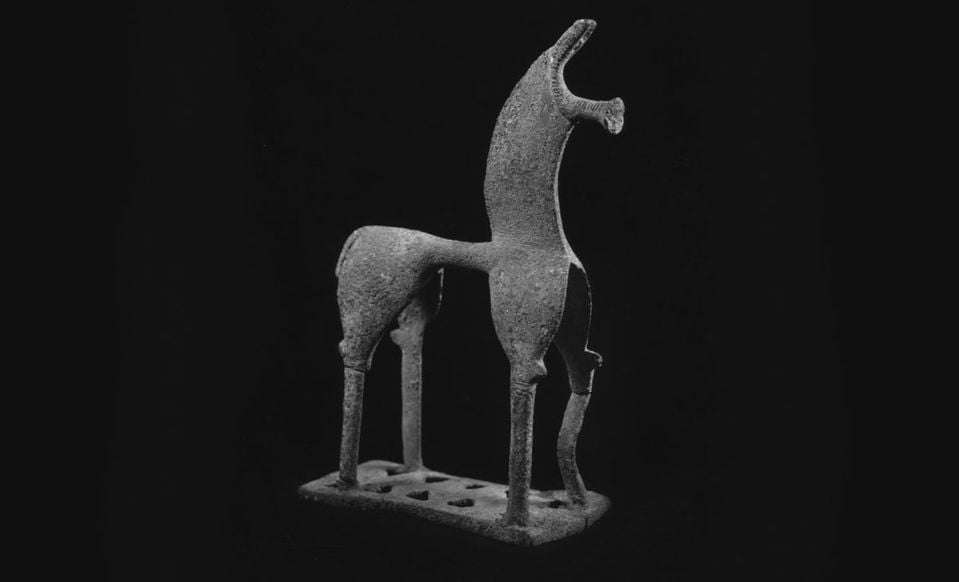Law & Politics
Sotheby’s Just Lost Its Lawsuit Against Greece Over an 8th-Century BC Horse Statue—and the Decision May Have Lasting Implications for the Trade
A lawyer for Greece says the ruling bodes well for the antiquities market.

A lawyer for Greece says the ruling bodes well for the antiquities market.

The ministry of culture in Greece has won a court ruling over Sotheby’s that may leave lasting effects on the antiquities market.
The case revolves around an 8th-century BC Greek equestrian statue that was slated to sell in a May 2018 Sotheby’s auction from the collection of Howard and Saretta Barnet. A day before the sale was to take place, the Greek ministry contacted the auction house claiming that the item, which was estimated to go for between $150,000 and $250,000, was of dubious provenance and should be returned to Greece.
After withdrawing the lot—which once passed through the hands of the disgraced art dealer Robin Symes, a major player in the looted antiquities market—Sotheby’s and the collection’s heirs hit back, demanding that Greece provide evidence that the work was traded illicitly, which the country was not able to do.
They also filed a suit against Greece, claiming that it acted “without lawful justification,” and sought a declaratory judgment that the bronze horse was “acquired lawfully and in good faith by the late Howard Barnet.” The request also sought a ruling that Greece had no ownership rights and that Sotheby’s could “lawfully” sell the work.
But on June 9, the United States Court of Appeals for the Second Circuit issued a ruling in favor of Greece, stating that the country was immune from such legal charges because it was not acting out of commercial interests.
“The Barnet decision will have a positive effect on the antiquities market,” says Leila Amineddoleh, a lawyer for Greece who was involved in the case.
“New York courts have long sought to protect the marketplace from being flooded with looted or stolen goods, and the Second Circuit’s decision enables foreign governments to continue communicating with art market participants to prevent the sale of illicit goods and protect consumers.”
She says it would be “troubling for auction houses or dealers to prevent foreign governments from inquiring about suspicious items on the market due to fear of litigation.”
In a statement, a Sotheby’s spokesperson said: “While we are disappointed with yesterday’s decision, it does not impact what is at the heart of this matter—there is, and remains, no evidence to support Greece’s claim to ownership of the bronze sculpture. We, together with our client, are reviewing next steps.”
The case marks the first time an auction house in the US has sued a foreign government for communicating concerns over an antiquity, but it has not been the last. In November 2019, the Safani gallery in New York sued Italy over its attempt to have a bust of Alexander the Great returned to the country.